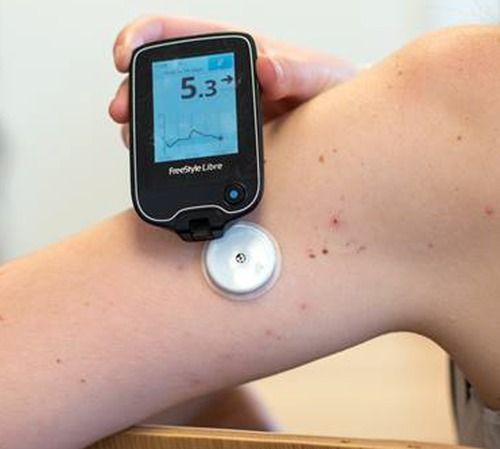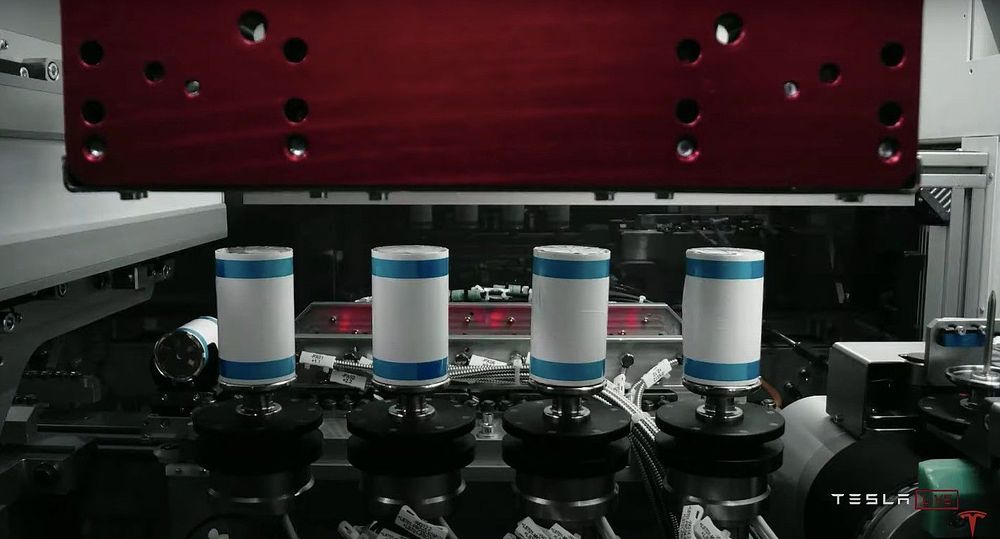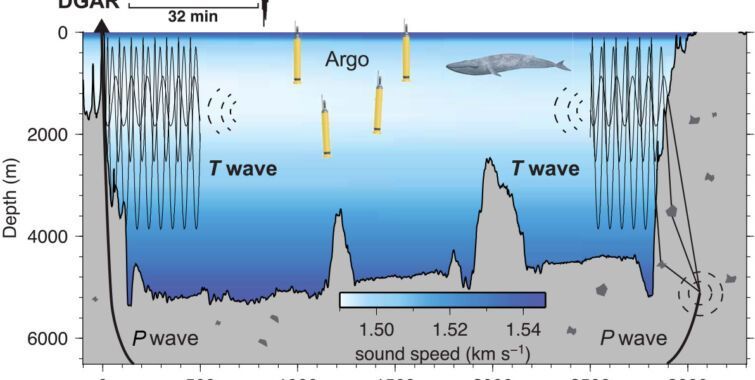Click on the article title to read more.



The far side of the Moon is the hemisphere of the Moon that always faces away from Earth. The far side’s terrain is rugged with a multitude of impact craters and relatively few flat lunar maria compared to the near side. It has one of the largest craters in the Solar System, the South Pole–Aitken basin.
Source: earth sky, NASA Music: Epic Hybrid Trailer by Infraction / We Will Win.

SLAC invention uses terahertz radiation to power a miniscule copper accelerator structure.
Particle accelerators generate high-energy beams of electrons, protons and ions for a wide range of applications, including particle colliders that shed light on nature’s subatomic components, X-ray lasers that film atoms and molecules during chemical reactions and medical devices for treating cancer.
As a rule of thumb, the longer the accelerator, the more powerful it is. Now, a team led by scientists at the Department of Energy’s SLAC National Accelerator Laboratory has invented a new type of accelerator structure that delivers a 10 times larger energy gain over a given distance than conventional ones. This could make accelerators used for a given application 10 times shorter.

Elon Musk recently clarified that Tesla’s new 4680 cells are already being deployed in some of its vehicles as prototypes. Even more interesting is that the next-generation batteries have already been in use for several months, though the CEO did not state which of its vehicles are equipped with the 4680 Roadrunner batteries.
The Tesla CEO related his update in a recent post on Twitter. While responding to a question about the company’s strategy with its cathodes and its suppliers, Musk noted that Tesla’s own battery cells are already powering some of its cars. That being said, Musk clarified that ultimately, prototypes such as cars that currently run on the company’s 4680 cells are trivial, as they are incomparably simpler than actual volume production.

Researchers identified five unapproved drugs in dangerous combinations and doses in over-the-counter cognitive enhancement drugs. Side effects of the unapproved drugs include increases and decreases in blood pressure, agitation, and sedation.approved drugs in dangerous combinations and doses in over-the-counter cognitive enhancement drugs. Side effects of the unapproved drugs include increases and decreases in blood pressure, agitation, and sedation.approved drugs in dangerous combinations and doses in over-the-counter cognitive enhancement drugs. Side effects of the unapproved drugs include increases and decreases in blood pressure, agitation, and sedation.
The Raider by Lockheed Martin is a next-generation prototype helicopter that looks to redefine helicopter flight 🙌.

It’s no problem atoll
To show that this works, the researchers used a seismometer station on Diego Garcia, a small atoll in the Indian Ocean about 3,000 kilometers from Sumatra. The tectonic plate boundary there is incredibly active, so there’s no shortage of earthquakes to work with. Between 2004 and 2016, there were over 4,000 earthquakes of magnitude 3.0 or higher that occurred near the Nias Island area of Sumatra. The researchers carefully processed all of these events to find repeaters similar enough to do the temperature calculation. They found over 2,000 such pairs based on 900 earthquakes.
If this portion of the Indian Ocean were to warm 1° C, T-waves from those earthquakes would take 5.4 seconds longer to reach this seismometer. The observed changes are smaller than that but they are coherent—there’s both an annual cycle and a gradual warming trend that look similar to other, more traditional datasets.

Astrophysicists at the University of Jena (Germany) prove that dust particles in space are mixed with ice.
The matter between the stars in a galaxy – called the interstellar medium – consists not only of gas, but also of a great deal of dust. At some point in time, stars and planets originated in such an environment, because the dust particles can clump together and merge into celestial bodies. Important chemical processes also take place on these particles, from which complex organic – possibly even prebiotic – molecules emerge. However, for these processes to be possible, there has to be water. In particularly cold cosmic environments, water occurs in the form of ice. Until now, however, the connection between ice and dust in these regions of space was unclear. A research team from Friedrich Schiller University Jena and the Max Planck Institute for Astronomy has now proven that the dust particles and the ice are mixed. They report their findings in the current issue of the research journal Nature Astronomy.
Better modelling of physico-chemical processes in space.

KAOHSIUNG, Taiwan (Reuters) — Taiwan President Tsai Ing-wen visited a low-key but critical maintenance base for fighter jet engines on Saturday, offering encouragement as the Chinese-claimed island’s armed forces strain in the face of repeated Chinese air force incursions.
This month alone, China’s drills have included its jets crossing the mid-line of the sensitive Taiwan Strait and exercising near the Taiwan-controlled Pratas Islands in the South China Sea.